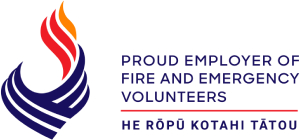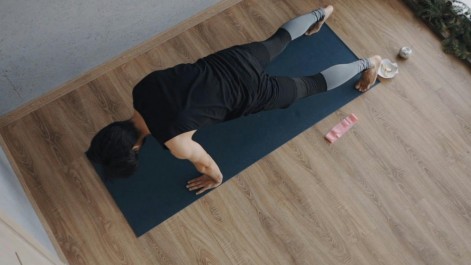Finding Hope in the Darkness: NSSI and Recovery
Ronnie Verano
Cuts? Burns? Bruises? Why does it feel so good?
Ironically, these should not be the first things that come to mind when one wants to cope with something. Yes, some individuals prefer this way of dealing with pain.
This way of escape has been called NSSI - non-suicidal self-injury, a coping mechanism when the emotional pain grows too much to bear, channelling it into physical pain in order to alleviate the emotional pain. It might be challenging to comprehend, but keep reading and know why such phenomena exist.
Many people are affected by the complicated and sometimes misunderstood phenomenon known as non-suicidal self-injury or NSSI. It is a topic often shrouded in secrecy but is more common than others might think. NSSI is not a cry for attention or a suicide attempt. It is a way for individuals to regulate their emotions and cope with stress, but it is also a behaviour that can lead to severe physical and emotional harm.
NSSI is a common coping strategy for handling severe emotional distress and can take many forms, such as cutting, burning, scratching, and beating oneself. NSSI, while not a suicide attempt, can have very adverse physical and psychological effects. We shall go into the realm of NSSI in this article, looking at its causes, consequences, and possible solutions. We seek to bring attention to this frequently stigmatized and ignored problem through comprehension and awareness.
NSSI is the intentional harm one causes to one's body without intending to die. These behaviours are frequently linked to underlying mental health issues such as depression, anxiety, PTSD, and borderline personality disorder (BPD).
NSSI can be an addictive behaviour since it offers momentary comfort from stress and emotional distress. NSSI may have adverse effects on the body and the mind. NSSI's physical side effects might result in scarring, infection, and nerve damage. NSSI users may also experience feelings of failure, humiliation, and guilt, which can worsen their mental discomfort. Also, there is a chance that NSSI will result in suicidal thoughts or actions, especially if the person feels powerless to stop the activity.
A variety of factors cause NSSI. Several elements frequently work together to explain the behaviour.
The following are some typical motivations of NSSI:
Emotional suffering: Many people use NSSI as a coping mechanism for emotional difficulties, such as grief, rage, or worry.
Trauma: Those who have gone through trauma may use NSSI to help them deal with the emotional anguish and memories brought on by the trauma.
Mental health conditions: As was already established, NSSI is frequently linked to underlying mental health issues such as depression, anxiety, BPD, and others.
Social factors: Peer pressure, bullying, and social isolation can all play a role in the emergence of NSSI.
Based on my study, Dealing Through Pain: A Qualitative Study on Non-Suicidal Self-Injury, I conducted last 2019, these are some potential reasons and accounts of those that participate in NSSI:
People frequently use NSSI to cope with severe emotional pain or discomfort. This could result from prior trauma, abuse, or other adversities. Some people may use the physical discomfort they experience from NSSI as a diversion from their emotional suffering or as a means to feel something when they are feeling cold or distant.
"When my father passed away unexpectedly when I was 15, I began cutting. Cutting gave me a chance to get some of the agonies I was experiencing out since I did not know how to deal with the strong emotions I was experiencing. With all the anguish and rage that was building up inside of me, it was like a release valve." - Rebekah, 21
NSSI can also regulate emotions, especially for people with emotional dysregulation. This could be the effect of trauma in the past or a mental health issue like a borderline personality disorder.
"I have battled self-harm for years and have BPD. When my emotions get too much for me to manage, cutting gives me the means to feel some comfort. Although it is not a good coping strategy, it is the only thing that works for me at the time." - Hayley, 19
NSSI may also help individuals feel in charge of their life, which can help them feel in control of their circumstances. This may be especially true for those who feel helpless or in control less over other aspects of their lives.
"When I was in an abusive relationship, I began cutting. That felt like the one aspect of my life I had control over. Cutting offered a sense of order and control while everything else seemed to be in a state of chaos." - Niklaus, 21
Looking for social support: NSSI may also be a tool for people to look for support and social interaction. This is especially true for adolescents and young adults who may feel alienated or removed from their peers.
"I first started cutting in high school. Cutting allowed me to connect with others going through the same thing since I felt like I did not fit anywhere. We would discuss our scars and provide advice on how to conceal them, which helped me feel less alone." -Katerina, 19
NSSI is a complicated behaviour with significant emotional and bodily consequences. Recognizing the fundamental reasons for NSSI is essential, as is getting help as soon as possible. We can assist individuals to overcome these challenging behaviours and leading happier, healthier lives by giving them the resources and assistance they require.
Back to Blog







